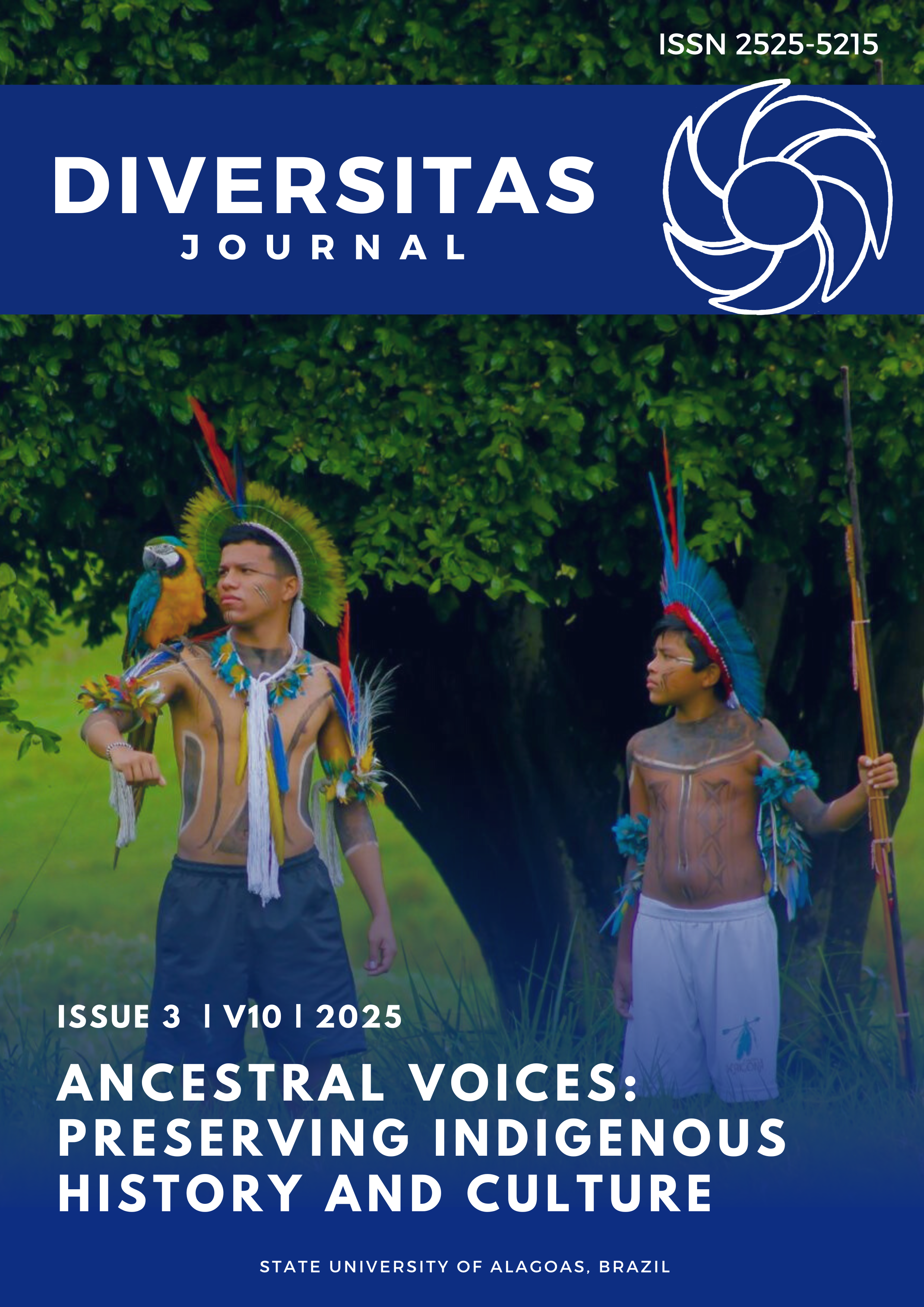Exploring the role of math applications in preservice teachers’ learning: a narrative inquiry
DOI:
https://doi.org/10.48017/dj.v10i3.3546Keywords:
math application, pre-service teachers, mathematics education, educational technologyAbstract
This study uses a narrative qualitative research design to explore the role of math applications in the learning experiences of preservice mathematics teachers. Data were collected through interviews with 15 preservice mathematics teachers enrolled in a teacher education program in La Union. The study focused on how preservice mathematics teachers made use of these applications, the difficulties they faced, and the possibilities for incorporating such tools into their future professional practices. Findings revealed that participants utilized Geogebra, Photomath, Gauthmath, Mathway, and Khan Academy applications. These tools enhanced their understanding of mathematical concepts through visual representations, interactive simulations, and step-by-step problem-solving. However, participants encountered difficulties such as poor internet connectivity, subscription limitations, and unfamiliar interfaces. Preservice mathematics teachers intended to incorporate these tools into their future teaching to promote student engagement, an interactive environment, and a deeper understanding of mathematics. These findings support integrating educational technology training among preservice mathematics teachers and highlight the role of digital tools in shaping 21st-century mathematics education. The study emphasizes equipping future educators with the necessary competencies to integrate technology into mathematics education effectively.
Metrics
References
Abdillah, A. (2023). Strengthening Preservice Teachers Conceptual Understanding of Linear Algebra by Using the Supplementary Book Integrated with the GeoGebra and Maple Applications. Mathline: Jurnal Matematika dan Pendidikan Matematika, 8(2), 705-724.
Campuzano, M. G., & Crisanto, T. (2022). Learning analytic geometry with the aid of Wolfram Alpha. International Journal of Innovative Science and Research Technology, 7(1), 722-727.
Cirneanu, A. L., & Moldoveanu, C. E. (2024). Use of digital technology in integrated mathematics education. Applied System Innovation, 7(4), 66.
Cozad, L. E., & Riccomini, P. J. (2016). Effects of digital-based math fluency interventions on learners with math difficulties: A Review of the literature. Journal of Special Education Apprenticeship, 5(2), n2.
Drijvers, P., & Sinclair, N. (2024). The role of digital technologies in mathematics education: purposes and perspectives. ZDM–Mathematics Education, 56(2), 239-248.
Falebita, O. S. (2024). Assessing the relationship between anxiety and the adoption of Artificial Intelligence tools among mathematics preservice teachers. Interdisciplinary Journal of Education Research, 6, 1-13.
Ghose, A., Chel, M. M., & Mahabidyalaya, S. (2024). Centre for pedagogical studies in mathematics: Challenges in mathematics education.
Gyimah, A. N. T. H. O. N. Y. (2019). The use of smartphone mathematics applications among preservice mathematics teachers at teacher universities in Ghana (Doctoral dissertation, University of Education, Winneba.(UEW)).
Haleem, A., Javaid, M., Qadri, M. A., & Suman, R. (2022). Understanding the role of digital technologies in education: A review. Sustainable operations and computers, 3, 275-285.
Hidayat, R., Zainuddin, Z., & Mazlan, N. H. (2024). The relationship between technological pedagogical content knowledge and belief among preservice mathematics teachers. Acta Psychologica, 249, 104432.
Ikhsan, M., Rochaminah, S., & Mastura, A. (2024). The Development of Geo-Math Application by Integrating Geo-Gebra Applets to Improve Students’ Spatial Ability. Jurnal Ilmiah Peuradeun, 12(3), 1129-1154.
Jun-On, N., Suparatulatorn, R., Kaewkongpan, D., & Suwanreung, C. (2022). Enhancing Preservice Mathematics Teachers' Technology Integrated Competency: Cooperative Initiation and Open Lesson Observation. International Journal of Information and Education Technology, 12(12), 1363-1373.
Kalyani, L. K. (2024). The role of technology in education: Enhancing learning outcomes and 21st century skills. International journal of scientific research in modern science and technology, 3(4), 05-10.
Kokkinos, L. (2024). Revolutionizing education: The dynamic intersection of technology and learning. Educational Research (IJMCER), 6(1), 26-32.
Kusi, P., Boateng, F. O., & Teku, E. (2025). The effect of technology integration on college of education students’ achievement in quadratic equations: The perspective of photo math utilization. Eurasia Journal of Mathematics, Science and Technology Education, 21(1), em2561.
Mishra, P., & Koehler, M. J. (2006). Technological pedagogical content knowledge: A framework for teacher knowledge. Teachers college record, 108(6), 1017-1054.
Pashchenko, O., Skorupska, O., & Zhuravel, A. (2024). THE ROLE OF TECHNOLOGY IN MATH EDUCATION. Collection of scientific papers «SCIENTIA», (November 1, 2024; Lisbon, Portugal), 168-176.
Paulin, M., & Ndagijimana, J. B. (2024). Effectiveness of the Symbolab Calculator in Improving Second Year Science and Mathematics Students Ability to Solve Trigonometric Equations. East African Journal of Education and Social Sciences, 4(6), 10-46606.
Tamur, M., Juandi, D., & Kusumah, Y. S. (2020). The Effectiveness of the Application of Mathematical Software in Indonesia; A Meta-Analysis Study. International Journal of Instruction, 13(4), 867-884.
Wali, A., & Popal, A. (2020). The emerging issues and impacts of technology in classroom learning. International Journal of Emerging Technologies in Learning (iJET), 15(15), 237-245.
Zamir, S., & Ali, H. (2023). Prospective Teachers' Perceptions, Reliance, and Barriers to ICT Integration in Mathematics Learning. Journal of Education and Educational Development, 10(1), 7-25.
Zutaah, P., Ondigi, S. R., & Miheso-O'Connor, M. K. (2023). PRESERVICE TEACHERS'PERCEPTION OF THE USE OF GEOGEBRA IN TEACHING AND LEARNING GEOMETRY IN THE COLLEGES OF EDUCATION, GHANA. JOHME: Journal of Holistic Mathematics Education, 7(1), 1-21.
Downloads
Published
How to Cite
Issue
Section
License
Copyright (c) 2025 Aladin Jon Sobredo, Jefferson Isidro

This work is licensed under a Creative Commons Attribution 4.0 International License.
The Diversitas Journal expresses that the articles are the sole responsibility of the Authors, who are familiar with Brazilian and international legislation.
Articles are peer-reviewed and care should be taken to warn of the possible incidence of plagiarism. However, plagiarism is an indisputable action by the authors.
The violation of copyright is a crime, provided for in article 184 of the Brazilian Penal Code: “Art. 184 Violating copyright and related rights: Penalty - detention, from 3 (three) months to 1 (one) year, or fine. § 1 If the violation consists of total or partial reproduction, for the purpose of direct or indirect profit, by any means or process, of intellectual work, interpretation, performance or phonogram, without the express authorization of the author, the performer, the producer , as the case may be, or whoever represents them: Penalty - imprisonment, from 2 (two) to 4 (four) years, and a fine. ”


















